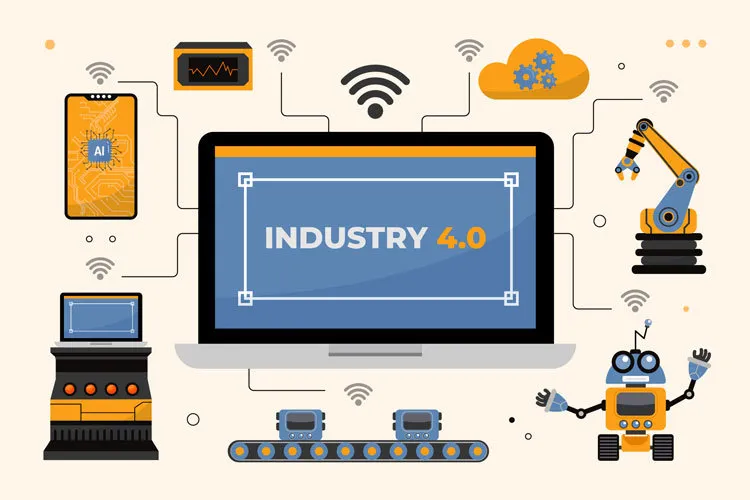Industry 4.0 is the fourth industrial revolution, characterized by the integration of advanced technologies such as IoT (Internet of Things), AI (Artificial Intelligence), machine learning, cloud computing, big data, and cyber-physical systems in manufacturing processes. This new era of automation transforms traditional manufacturing methods into intelligent, interconnected systems capable of self-optimization, real-time monitoring, and predictive maintenance.
Industry 4.0 enables the seamless exchange of data between machines, devices, and people, making it possible for businesses to operate smarter, more efficiently, and with greater flexibility. By connecting production systems to the digital world, companies can drive innovation, improve product quality, and reduce operational costs.

The result is a fully automated, data-driven ecosystem where real-time decision-making optimizes every aspect of manufacturing. You may find more details about related IoT Products here.
Increased Efficiency and Productivity: By automating routine tasks and enabling real-time decision-making, Industry 4.0 reduces downtime and optimizes manufacturing processes, leading to higher output and reduced lead times.
Cost Reduction: Industry 4.0 technologies streamline operations, reduce waste, and improve energy management. Predictive maintenance reduces unexpected downtime and repair costs, and automation minimizes the need for manual labor.
Improved Quality Control: With sensors and real-time monitoring systems, manufacturers can detect quality issues early in the production process. AI-powered quality control systems automatically identify defects, reducing the risk of faulty products reaching customers.
Greater Flexibility and Customization: Industry 4.0 enables flexible production systems that can quickly adjust to changing market demands or customized product orders. Manufacturers can offer mass customization without sacrificing efficiency.
Enhanced Safety: Automation reduces human involvement in dangerous or hazardous tasks, while smart systems monitor environmental conditions and safety protocols, protecting workers and improving overall workplace safety.
Data-Driven Decision-Making: With access to real-time data and analytics, manufacturers can make informed decisions based on actionable insights. This leads to better forecasting, resource allocation, and process optimization.
Sustainability: Industry 4.0 enables better resource management, energy optimization, and waste reduction, contributing to environmentally friendly and sustainable manufacturing practices.
Connectivity and Network Infrastructure:
Data Processing and Analytics:
Hardware and Devices:
Security and Compliance:
Software and Integration:
